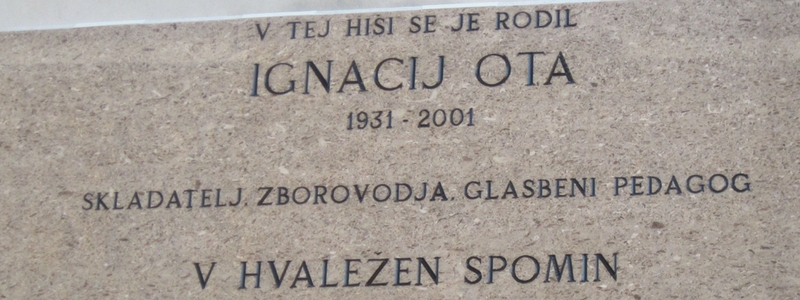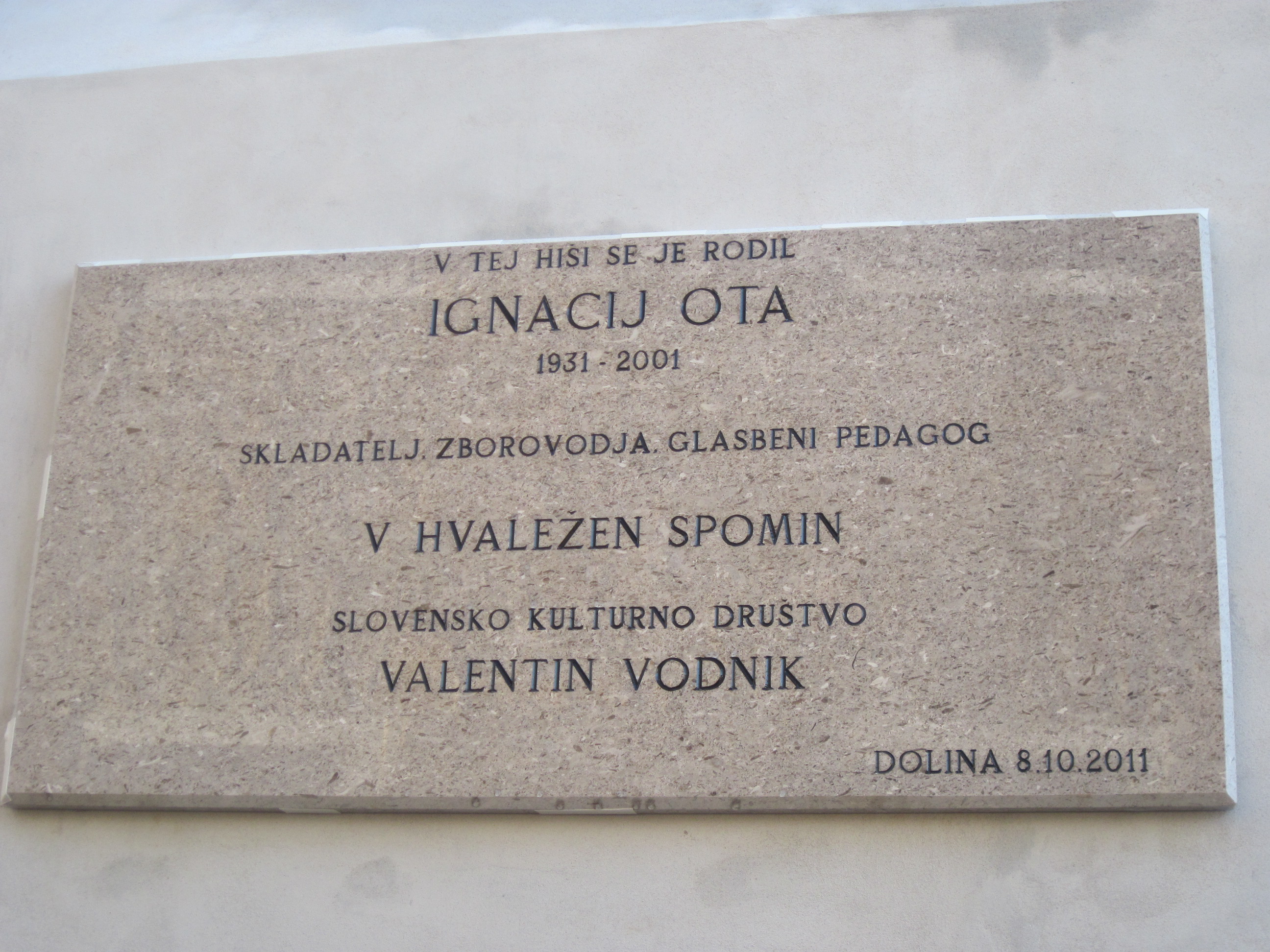In 2011, on the 80th anniversary of his birth and the 10th anniversary of the death of Ignacij Ota, the Slovenian Cultural Society Valentin Vodnik of San Dorligo della Valle had a memorial plaque attached to the façade of the composer’s birthplace.
Ignacij Ota
Ignacij Ota (1931–2001) was a culture professional, composer, conductor and teacher, a member of the Slovenian national minority in Italy. He devoted himself mainly to choral music, which he held to be the primary constituent of Slovenian culture.
Ota was born on a farm in San Dorligo della Valle (Slovenian: Dolina) in the Province of Trieste, and entered an Italian primary school at the age of six. A childhood experience, his fellow villagers bidding farewell to young boys going off to war in 1941 by singing Slovenian songs, made a lasting impression on Ignacij, who on this occasion conducted his schoolmates singing in the classroom. As speaking and singing in Slovenian was forbidden in those days, he suffered an angry outburst from his teacher. Nevertheless, this experience did not thwart his musical aspirations, quite the contrary; he applied himself to music with even greater fervour. He studied organ and music theory with the parish priests Placido Sancin and Franco Malalan.
In 1945, he entered the School of the Glasbena matica Music Society in Trieste as one of its first students. He studied piano under Milan Pertot and attended several choral conducting courses. In 1948, he set to music his first song, Ribičeva jutranja pesem (Fisherman’s Morning Song), based on a poem by Anton Aškerc. At the young age of seventeen, he conducted the Valentin Vodnik Choir in concert. During this early period, he continued his musical education, studying counterpoint and piano with composer Ivan Grbec in Škedenj, and played organ at his local parish Church of Saint Urlich.
He obtained graduate education in Ljubljana. In 1949, Ota enrolled in the preparatory school for secondary music school, and later attended the Academy of Music, studying double bass, piano and harmony. After graduation, he taught at the Glasbena matica School in Trieste.
With the emerging national identity, which Slovenians grounded in singing folk songs, the post-war period also witnessed a flourishing cultural life. Ota actively partook in these endeavours, harmonising many folk songs and writing several choral compositions and arrangements for female, male, mixed and children’s choirs. He formed and conducted several choirs in Goriška, and was one of the initiators and longstanding organisers of Primorska poje, a vocal music event aimed at fostering a sense of community among Slovenians in Primorska, erasing from their consciousness the firmly established borderline division.
He served as the choirmaster of the Valentin Vodnik Choir for thirty years. He was co-founder of the Primorska Academic Choir Vinko Vodopivec, in which he also sang as tenor soloist.
His most notable compositions include Na Krasu (In the Karst), cantata Minuta tišine (A Moment of Silence) and song Temna noč (Dark Night).
Ignacij Ota ranks among the influential national minority musicians who were instrumental in shaping Slovenian national consciousness through their music.
Maia Juvanc

